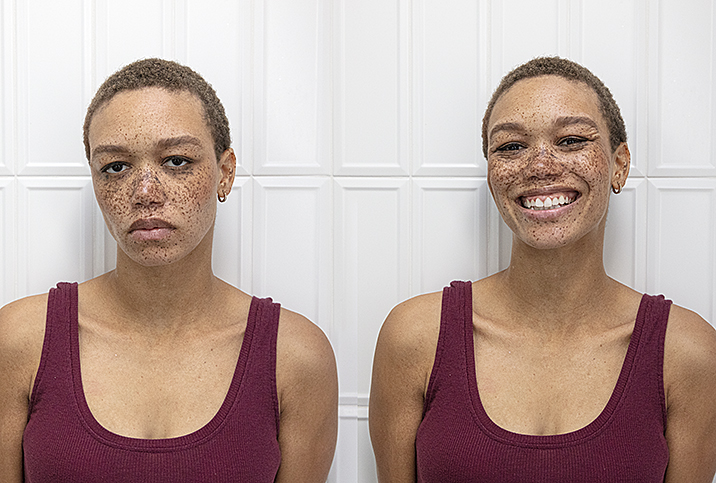Managing Premenstrual Dysphoric Disorder

Premenstrual dysphoric disorder (PMDD) is characterized by physical, mental and emotional symptoms that occur in the immediate weeks leading up to a period. While some PMDD characteristics overlap with premenstrual syndrome (PMS), the symptoms of PMDD are more extreme, often debilitating sufferers to a much greater extent than PMS.
PMDD affects up to 8 percent of women who menstruate and causes extreme mood shifts that can disrupt daily life and bring turmoil to an individual and their relationships. Symptoms of PMDD can appear any time between puberty and menopause, but it is most common for women to experience problems in their late 20s to early 30s. Though not much is known about what exactly causes the disorder, it's likely to be due to a heightened sensitivity to reproductive hormones.
While symptoms are unique to each individual, they may include severe fatigue, mood swings, emotional sensitivity, irritability, heart palpitations, paranoia, backaches, muscle spasms, hot flashes, sleep disturbances and more. The weeks when PMDD symptoms are present can be hellish for a sufferer and have a significant impact on physical and mental health.
My journey to understanding PMDD
Though I feel I unknowingly suffered from PMDD since puberty, I was 22 when I could finally put a name to it. With a busy life working and going to school, I wondered if the frequent mood shifts I experienced were the result of being overworked.
As time went on, symptoms became relentless and seemed to get worse. I went through periods of darkness leading to social withdrawal; activities that previously interested me no longer did, and occurrences that typically wouldn't bother me suddenly ignited a flame of anger within my body. I didn't recognize this version of myself.
My mother suggested I document and track my symptoms to see if there were any correlation with my monthly cycle. Once I started following my symptoms, I noticed the switch in moods occurred about two weeks before my period. I took this information to a mental health counselor who I'd been seeing for my anxiety disorder and explained to her the severity of my symptoms and how they seemed to correlate with my period's timing. She strongly felt I was dealing with PMDD. Although the psychiatric symptoms were overpowering, the severity of my physical ones matched. I would get extreme lower back pain, headaches, lightheadedness, nausea, extreme fatigue and an odd rash on my neck around ovulation.
Since PMDD is an underfunded area of research, many doctors are unable to provide patients who have it with thoughtful, informed approaches to treatment. A few medical practitioners have validated my feelings and reaffirmed my diagnosis, but unfortunately, many of them also recommended antidepressants before exploring other treatment methods first. Antidepressants are not the only pharmaceutical available to treat PMDD. Birth control pills inhibit ovulation and the wide hormone fluctuations that cause symptoms.
Had I not logged my symptoms and done my research about PMDD, I may not have received the help I needed when it came to managing this disorder. I tried to get help from a general practitioner and an OB-GYN. Sadly, neither provided better care or knowledge than the other.
How I manage my PMDD symptoms
Therapy helps me most when managing and coping with PMDD. Some of the practices that work best for me are tracking my cycle, understanding what each phase of it means, practicing self-care, eating foods that make me feel good (this includes allowing myself to indulge occasionally in not-so-healthy ones), moving my body and finding support groups to share thoughts with other people who understand what I'm going through.
Tracking ovulation with a basal body thermometer helps me predict when ovulation—and the onset of symptoms—will occur. This helps me prepare for the switch in my body, so I'm not suddenly blindsided by a whirlwind of emotional distress. The basal body thermometer I use has a corresponding app that allows me to document my basal body temperature—fully at rest—leading up to ovulation, as well as track my period and symptoms.
When I know I'm ovulating, I make sure to balance my time and carve out extra space for self-care. I take hot baths, watch my favorite reality-TV show, move my body in a gentle way that still gets my blood pumping, indulge in my favorite foods. Basically, I engage in any and all activities that put my body and mind at ease.
Take matters into your own hands and get to know your PMDD, but remember that you're not alone in your struggle.
I prefer to manage my PMDD in the most natural way possible, which I understand isn't possible for some people. For me, CBD oil helps relieve a lot of my psychological symptoms, so I like to put a few drops of CBD in raspberry leaf tea, a method that has been used for at least two centuries to help support healthy uterus function. Some women also pay close attention to their diet, as certain foods may worsen symptoms. Diet modification, supplements and exercise are important natural ways to control symptoms of PMDD.
Some claim that taking antihistamines in the two weeks leading up to their period helps manage their symptoms. The link between histamines and ovulation hasn't been extensively studied, but one study in rabbits from the 1980s suggests that histamine production may increase after ovulation, which some women with PMDD feel worsens their symptoms.
Take matters into your own hands and get to know your PMDD, but remember that you're not alone in your struggle. Lean on those you love and trust. Several online support groups are available for people who suffer from PMDD. One of my favorite platforms is Me v PMDD on Instagram and Facebook. (The Facebook group is private, so you must apply to it and get accepted.) This group has thousands of women who suffer from PMDD and share their thoughts, feelings and stories about what works for them. Having a community of people who understand what you are experiencing, even if it's only online, is a great reminder that you are not alone in grappling with this difficult disorder.
Intimacy & PMDD
As the weeks leading up to your period bring an extreme shift in hormones and a slew of unwanted side effects, nurturing your relationship may be the last thing on your mind. When you are experiencing PMDD, it can be challenging to muster up the energy to explain to your significant other what is going on in your mind and body. Talking about PMDD when you're not experiencing symptoms might be best. I talk to my partner about what it is, how it affects me and my needs beforehand so when I'm experiencing symptoms, he knows how to best support me.
Intimacy can be difficult to navigate when your emotions are high, but if you find yourself in the mood, it may actually work to your advantage: having solo or partnered sex can be a huge stress reliever and mood booster. Listen to your body and do more of what makes you feel good while avoiding what doesn't. The people who love you and know you will understand and not push you. I recommend approaching PMDD as you would anything else in life: with an open mind, one day at a time.

















